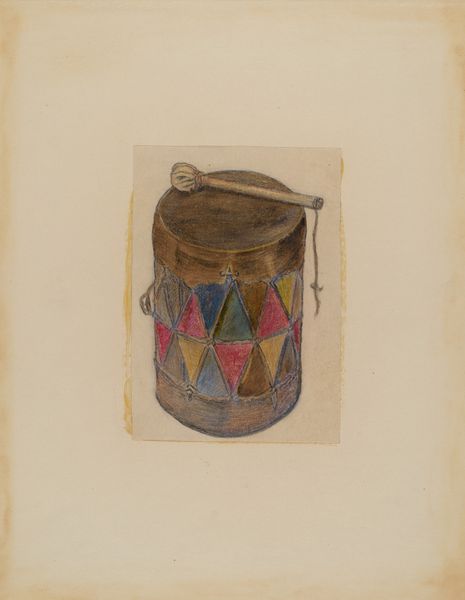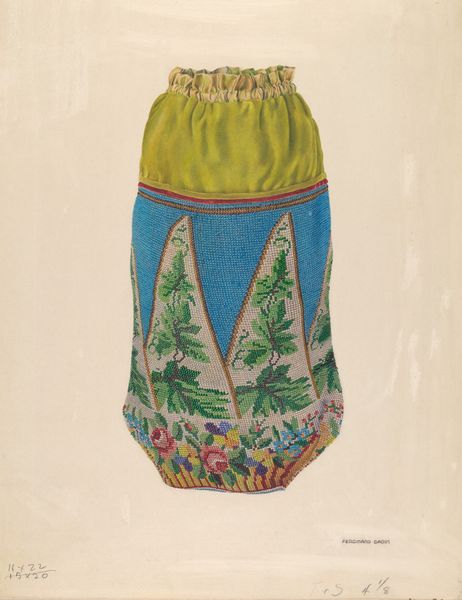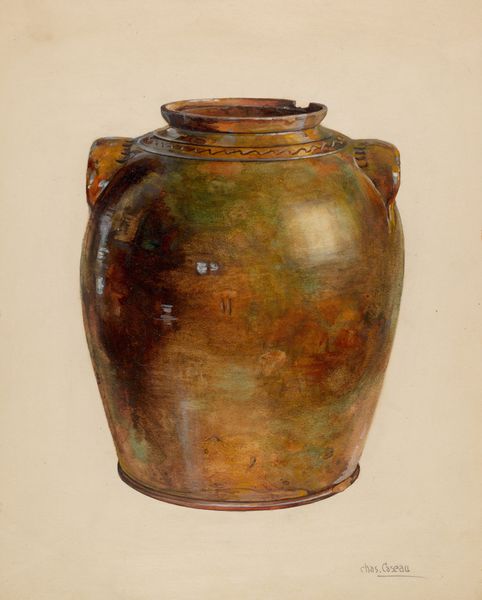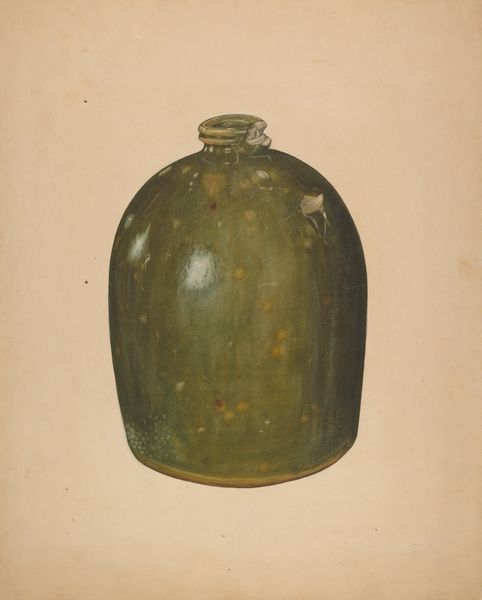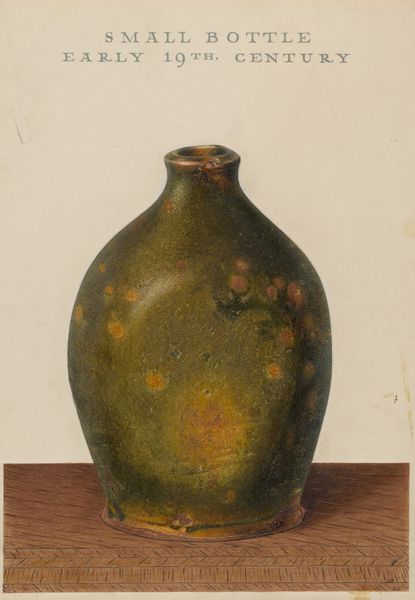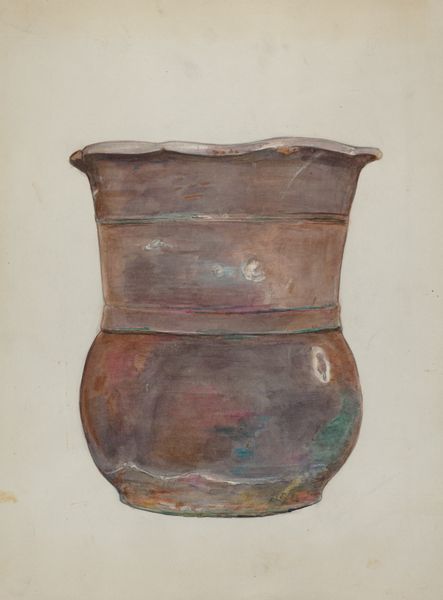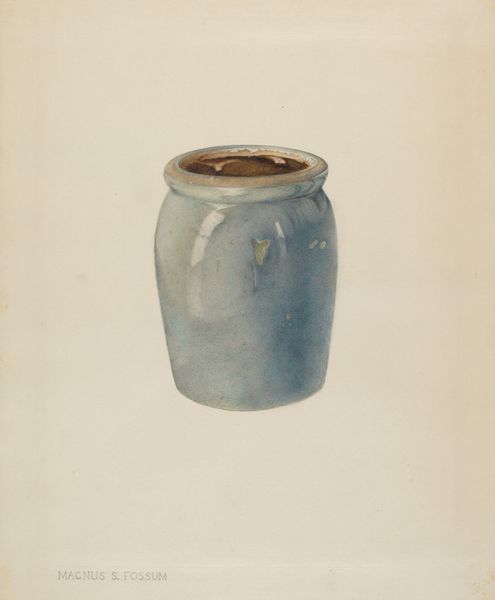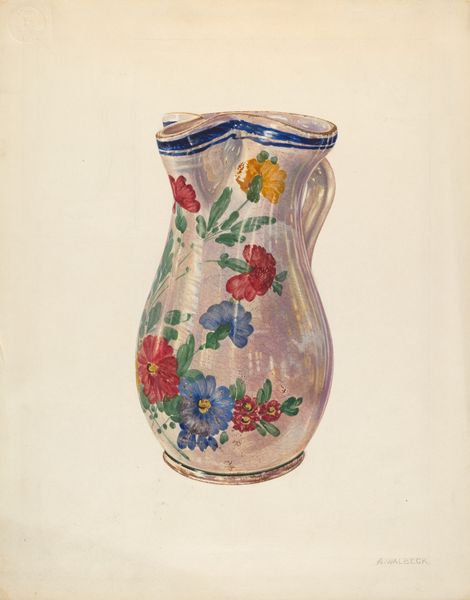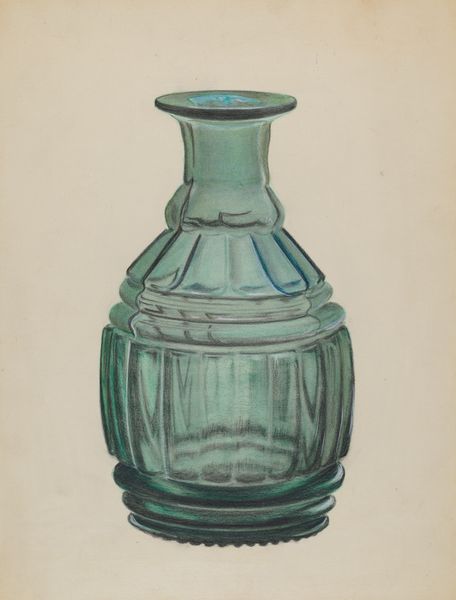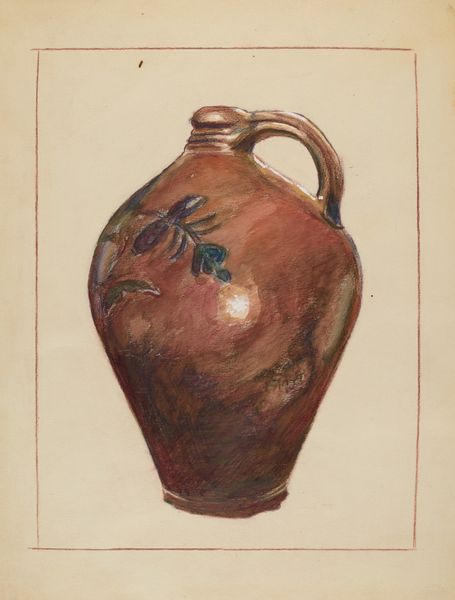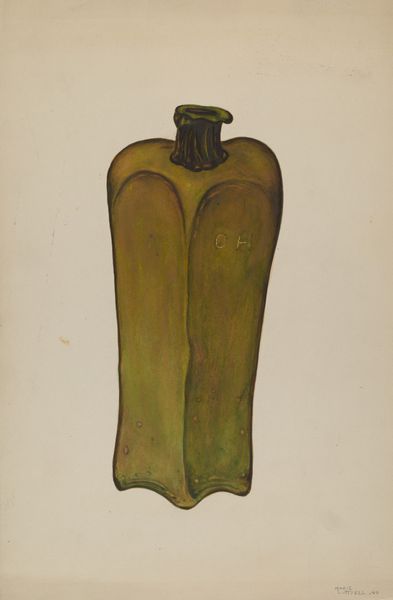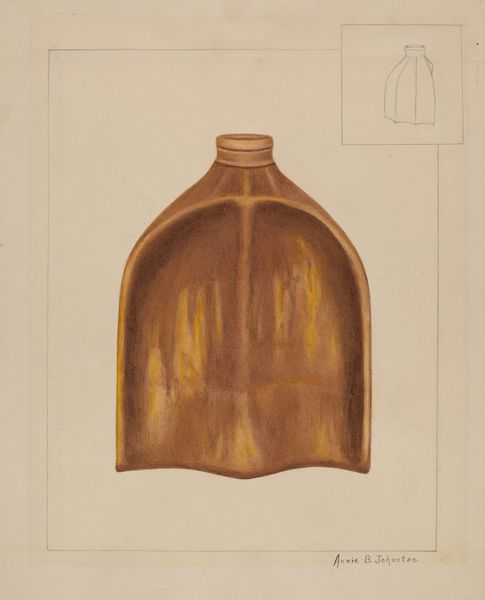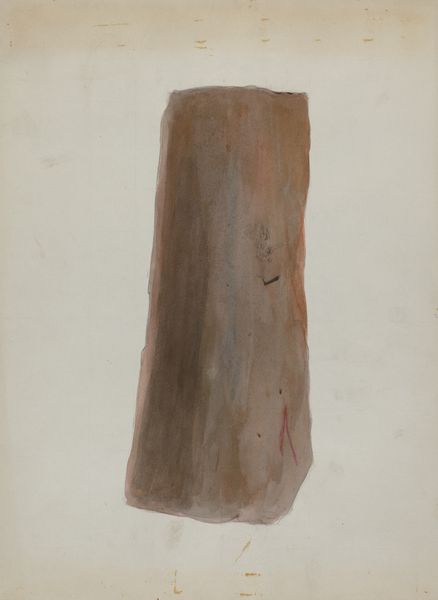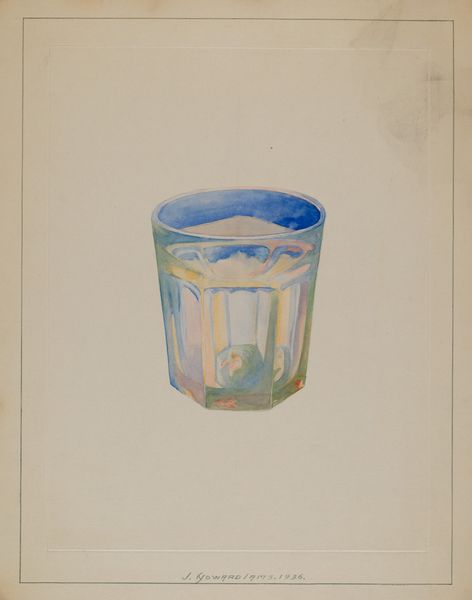
drawing
#
drawing
#
water colours
#
possibly oil pastel
#
handmade artwork painting
#
oil painting
#
acrylic on canvas
#
underpainting
#
painting painterly
#
watercolour bleed
#
watercolour illustration
#
watercolor
Dimensions: overall: 35.4 x 26.5 cm (13 15/16 x 10 7/16 in.) Original IAD Object: 14" high; 8 1/2" in diameter
Copyright: National Gallery of Art: CC0 1.0
Editor: This is Cecily Edwards' "Clay Flower Jar," created around 1936, and it looks like it's rendered in watercolor. I'm immediately drawn to the almost playful, abstracted shapes. What do you see in this piece? Curator: It's a lovely piece. What immediately strikes me is how Edwards uses the simple image of a jar to tap into something primal. Think about the archetypal image of a vessel – in dreams, mythology, across cultures. What does a jar signify? Editor: Well, a container… a place to hold something? Maybe even, like, nurture it? Curator: Exactly! It’s linked to ideas of femininity, the womb, the source of life. The roundness of the jar reinforces that. And notice how she renders the jar imperfectly. It’s chipped and worn. What do these imperfections suggest? Editor: Maybe it's a contrast. The jar, symbolizing something perfect like potential life, is actually flawed. It's… human? Curator: Precisely! Edwards reminds us that even symbols of perfection bear the marks of time, the reality of existence. And think of the green, a life-giving color, dominating the jar’s upper half – suggesting growth, abundance. Editor: It’s interesting how something so ordinary can be layered with so much meaning. I wouldn't have looked at it that way at first glance. Curator: Visual language is potent because of these layers. By painting a ‘simple’ jar, Edwards is able to transmit an array of ideas, creating a deep and accessible reflection. We have to unpack this visual code to appreciate her cultural contribution. Editor: Thanks for unveiling it! I am walking away from this conversation seeing both an actual painting and a historical statement.
Comments
No comments
Be the first to comment and join the conversation on the ultimate creative platform.
